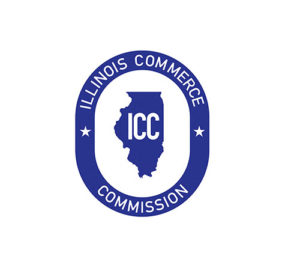Editorial: ESG–Worthwhile or a waste of time?
Written by David C. Lester, Editor-in-Chief
ESG is one of the latest business acronyms. If you haven't run across it yet, you will soon.
What is ESG?
For nearly a decade, most Class 1 railroads have produced a sustainability report, which is an annual review of the corporation’s efforts to be a good steward of the environment, it’s employees, customers, safety, corporate governance, and communities in which it operates. While these reports have varied somewhat among railroads in format and material included, the reports cover essentially the same topics. In addition to railroads, other corporations around the world have produced sustainability reports. European corporations have been strongly focused on sustainability.
During the past several years, the topic of sustainability has morphed into a more comprehensive analysis called ESG, which stands for Environment, Social and Corporate Governance. The idea behind sustainability, and now ESG, is that investors have become increasingly focused on carbon footprints and green initiatives in the companies where they invest. They’re also interested in the social aspects of a corporate environment, including how a company treats its employees, as well as how a corporation is governed. Governance, loosely defined, is the makeup of the board of directors, and adherence to the general policies and principles the company has defined that it believes will lead to success. Governance focuses on areas such as ethics, risk management, human rights, and cybersecurity, to name a few.
A quick survey of Class 1 websites shows that the term “ESG” has recently come into use in place of “sustainability.” For example, CSX produced ESG reports for 2019 and 2020 and Norfolk Southern has produced an ESG report for 2021. CN produces a “Delivering Responsibly” report that refers to ESG, and BNSF and CP produce “Corporate Sustainability” reports. Even though BNSF is privately owned, I expect that all of the Class 1s will produce ESG reports from now on. There are agencies that set the standards for ESG ratings, such as the Global Reporting Initiative (GRI). Both CSX and NS use the standards from this organization. Other agencies are responsible for rating companies on their ESG performance, and one widely used is MSCI. Rules-based methodology that includes many factors generates the MSCI ratings. These ratings are first generated as a numerical score, then translated to letter grades of AAA to CCC, with AAA and AA ratings being leaders; A, BBB, and BB are average scores, and B to CCC are labeled “laggards.”
What’s the value of ESG?
The value of ESG depends on whom you talk to. Opinions range from “it’s the greatest thing since sliced bread, better get on board now” to “it’s a worthless exercise.” I’m still trying to formulate my opinion of its value – does it provide factual, measureable and reportable information to help those investors who are concerned about environmental and social issues, or is it simply window dressing used for marketing purposes?
While the information provided in the reports is good, as most investors are interested in fighting climate change, hoping that companies treat their employees and other stakeholders fairly and justly, and having the governance of the company to be solid so the return on their investment is maximized. The Class 1 ESG reports that I’ve seen set forward lofty goals and provide a lot of information. Yet, I could not find any numerical standards–only categories of GRI standards–and, no rating scores in any of the reports I reviewed. Isn’t rating companies against a set of standards in order to convey the overall ESG score the whole idea? I’m not sure if the scores and ratings are confidential, but their absence undermines the validity of everything else in the report.
Another challenge is that most of the information that performs the basis for these reports is provided by the company itself. Does anybody verify that data? ESG is not currently regulated and, moreover, different standards and rating companies may use different criteria when evaluating this information. The Office of Investor Education and Advocacy of the Securities & Exchange Commission (which does not make official statements on behalf of the SEC, and has no regulatory authority) points out that different investment funds may consider ESG factors differently. “Different funds may weight environmental, social, and governance factors differently. For example, some ESG funds may invest in companies that have strong governance policies, but may not have the environmental or social impact needed to encourage investment in the fund.” The OIEA also says “Some ESG fund managers may consider data from third party providers. The data could include ‘scoring’ and ‘rating’ data compiled to help managers compare companies. Some of the data used to compile third party ESG scores and ratings may be subjective. Other data may be subjective in principle, but are not verifiable or reliable. Third party scores may also consider or weight ESG criteria differently, meaning that companies can receive widely different scores from different third party providers.”
The ESG waters seem awfully muddy to me. While I certainly applaud corporate efforts to take care of the environment, treat their people, customers and other stakeholders well, and to govern their companies effectively, the ESG methodology doesn’t seem very clear. For one thing, exactly how are scores and ratings calculated? Could we see an example? How much of the process is objective and how much is subjective?
Given the number of layoffs in the rail industry over the past couple of years, it’s hard to think positively about a company’s social rating. Many people have been laid off, and those who haven’t live in fear that they may be next. For shippers, another company stakeholder, the service troubles some roads are having don’t earn them any social points, either. And, the obsessive focus on the operating ratio does not seem to fit with the ESG approach.
I wonder, if for some strange reason, coal once again became a hot commodity for the railroads, and carloadings rose to the levels of the 1990s. Obviously, hauling coal for burning at power plants would not win any environmental points for the railroads, but considering the tremendous amount of revenue coal would bring in, I wonder what the industry would do. My guess is they would haul the coal, take the hits in the public/investor space, and the ESG report may even hit the trash. That’s probably an exaggeration, but maybe not. It’s difficult to imagine that the short-term profit mindset that’s been prevalent for so many years has evaporated overnight and everyone’s focused on ESG-based investing. Another thought about ESG is that during the past year or two, it has spawned an army of consultants, authors, and “experts,” who expect to be paid big money for their services in guiding companies through the morass of detail and uncertainty of ESG, and promote the idea that this is a “burning platform” that companies need to address now because investors are demanding it. Preparing ESG reports will also require significant resources within a company.
In my view, the jury is still out on the true value of ESG. It may evolve into something very worthwhile that companies and investment communities would be irresponsible to ignore. Or, it may prove to be of marginal value, and may not affect company performance data. If the latter occurs, the time required to prepare ESG reports would be better-spent planting trees and cleaning the environment.
David C. Lester is the managing editor of Railway Track & Structures. The views expressed in this editorial are his own, and are not necessarily those of Railway Track & Structures or anyone at Simmons-Boardman.





